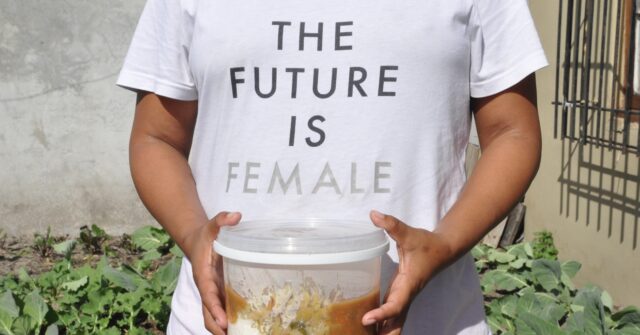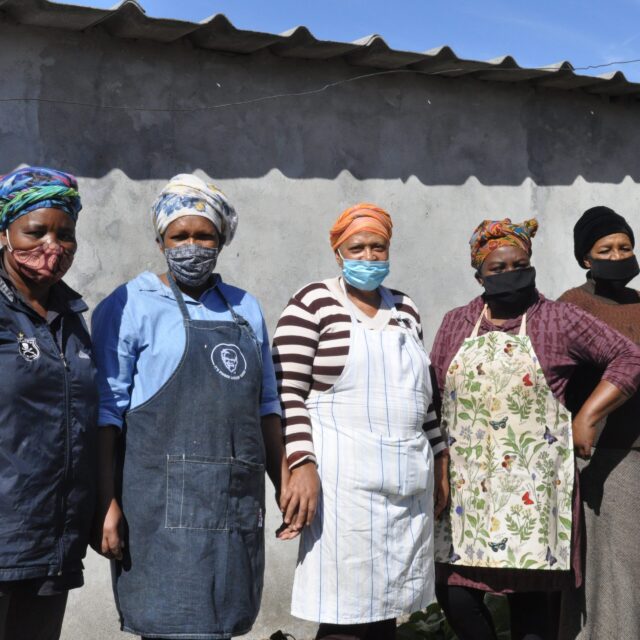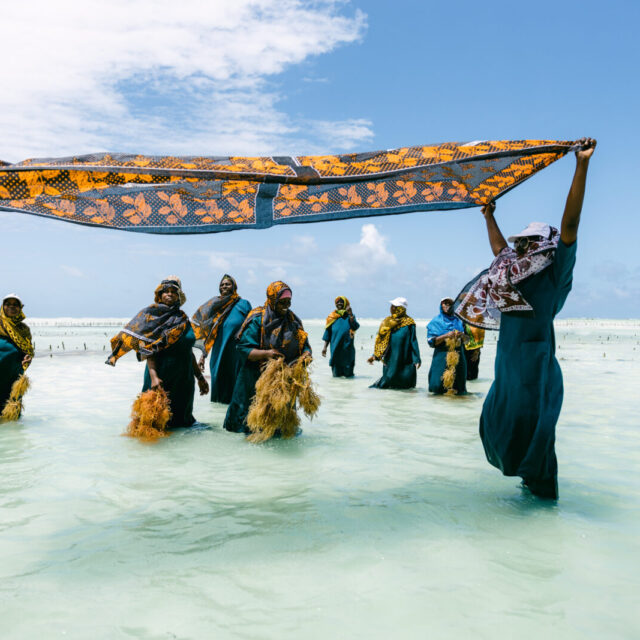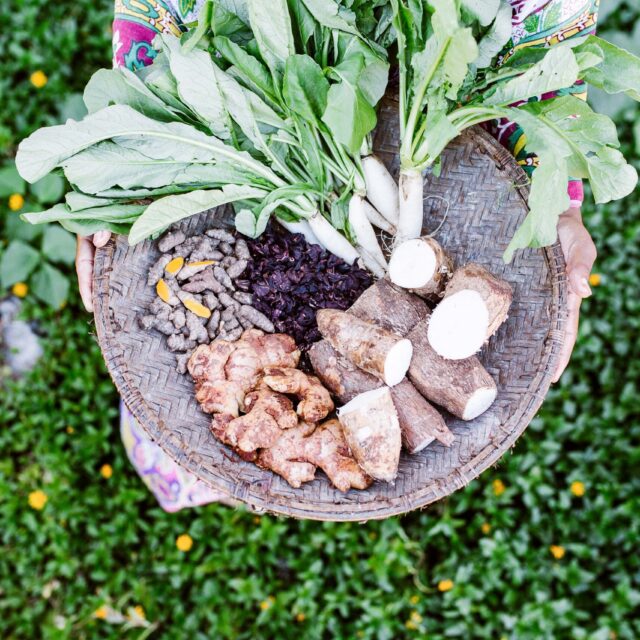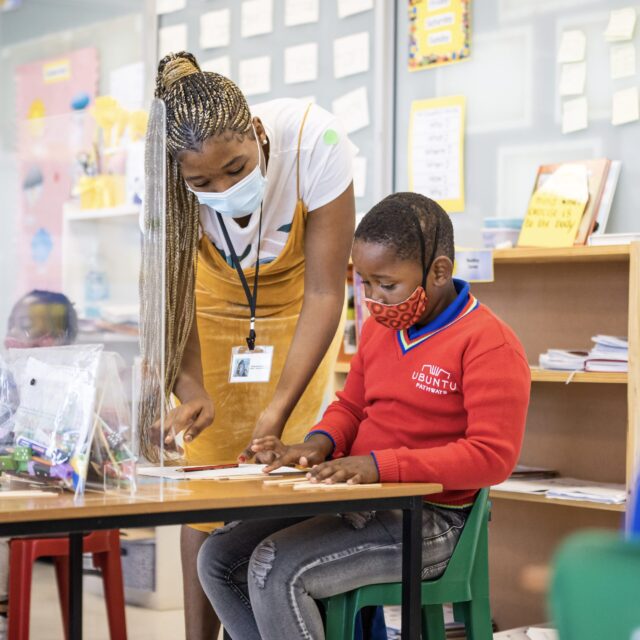Megan Gieske is a storyteller and photographer based in Cape Town, South Africa.
Ntombi Mbinda gestures around the kitchen in her home; it’s a room only of women. One woman bends over a pot, stirring the day’s rice. Another cuts vegetables, their headwraps shine brilliantly in the slanting light of the afternoon sun.
The women — Theodora, Lorna, Phindiwe, Nobuntu, and Noxolo — arrive every weekday at 8:30am to begin cooking from Ntombi’s home. Outside the kitchen, a garden Ntombi planted in July to support the soup kitchen with cabbage, beet, rapeseed, nettles, and chives, grows rich and green in the light.
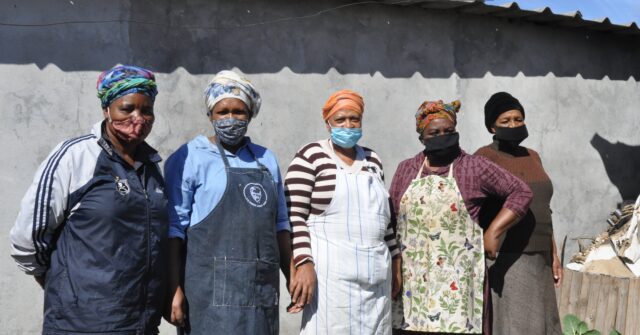
Armed with masks sewn from Shweshwe fabric, celebrating South African culture, the five women look like superheroes, as they prepare the meal for the day. It’s Monday, which means they’re serving vegetables and rice. On Tuesdays, it’s samp and beans, and on Thursdays, pap and vegetables. Wednesdays and Fridays are for soup and bread from Woodstock Brewery’s Mother Soup project, which reimagined their brewing equipment as large pots capable of “brewing” humanitarian soup.
Every weekday, a line forms outside Ntombi’s house. The women make sure social distancing is practiced and everyone sanitizes their hands.
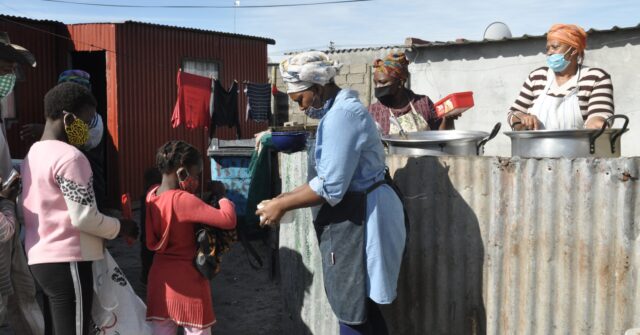
“At first, even myself I didn’t have food to prepare, but this one would come with 10 potatoes, this one would come with oil, this one would come with rice. This is how we started it, together,” explains Ntombi.
“We needed to do something. As Ntombi says, she gave us this idea, so we said, ‘We must take this, even if we have a small thing,’” says Theodora, one of the five women volunteering in the soup kitchen.
A community in need
The apartheid government fell in 1994, but communities like Gugulethu are still isolated by fear and an ever-increasing wealth gap. South Africa is regularly labeled one of the most unequal countries in the world. In Gugulethu, which means “Our Pride” in isiXhosa, over 98,000 people share just 6.42²km (2.5² miles) of land.
The unemployment rate struck a record high this year in South Africa due to COVID-19, past 10 million people. Previously black-only townships like Gugulethu have been affected at a disproportionate rate with 10% of the population in South Africa experiencing the greatest percentage of over 55% reduction in employment.
The percentage of people who’ve experienced food scarcity increased from 25% to 47%, and the percentage of “children going hungry over the past seven days” is expected to nearly double from 8% to 15.2%.
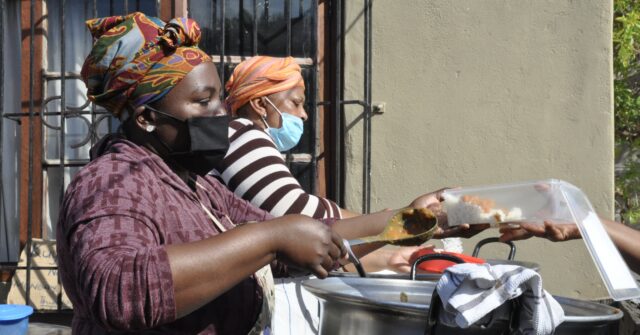
Ntombi’s soup kitchen
One woman in line at the soup kitchen lost her job in the hospitality industry as a result of the pandemic. She has been coming to the soup kitchen since April.
While South Africa was in the throes of their strict national lockdown beginning on 26 March, Ntombi was on the frontlines of the battle to keep her community fed. She wasn’t standing alone.
Ntombi Mbinda has long been a leader in her community, teaching nutrition and organic urban farming through her non-profit, SSGC (Schools Smoothie Gardens and Community Projects). If you walk around Ntombi’s neighborhood in Gugulethu, she can point to almost every house and say she started a food garden there.
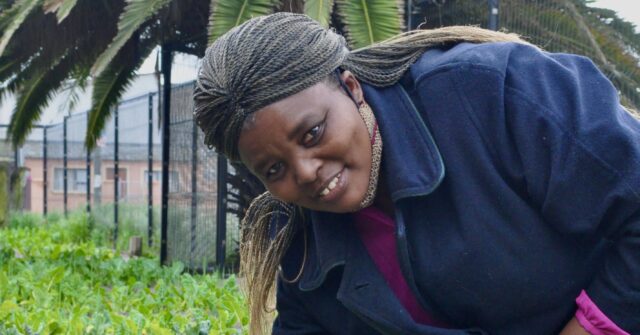
“Ntombi, she’s active. She’s organized. She’s doing everything,” Lorna explains, “That’s why we decided to volunteer to help with the soup kitchen.”
Together, not only did the women jump to the frontlines of the pandemic to provide for the soup kitchen at Ntombi’s home, but also for five orphanages and another area of “Gugs” at the KTC Gugulethu Community Health Center.
For nearly four months, South African schools remained closed to slow the spread of COVID-19.This meant children missed their at-school lunches, what for many may be their only meal each weekday. “During the day, they need something to eat,” Theodora said, “So if we have time and something to give, we are willing to do it.”
As she surveyed with pride the men, women, and children from her community leaving the soup kitchen with full bowls of vegetables and rice, Ntombi said, “It’s so fulfilling to know that what I do other people value, and they want to be part of that. So this is what I’ve witnessed in my community now, where there are so many ‘Ntombis.’ And it shows, really, it’s impacting the community.”
Ntombi has proven that in a crisis, we must first look to the women who are frontline leaders in their communities.
